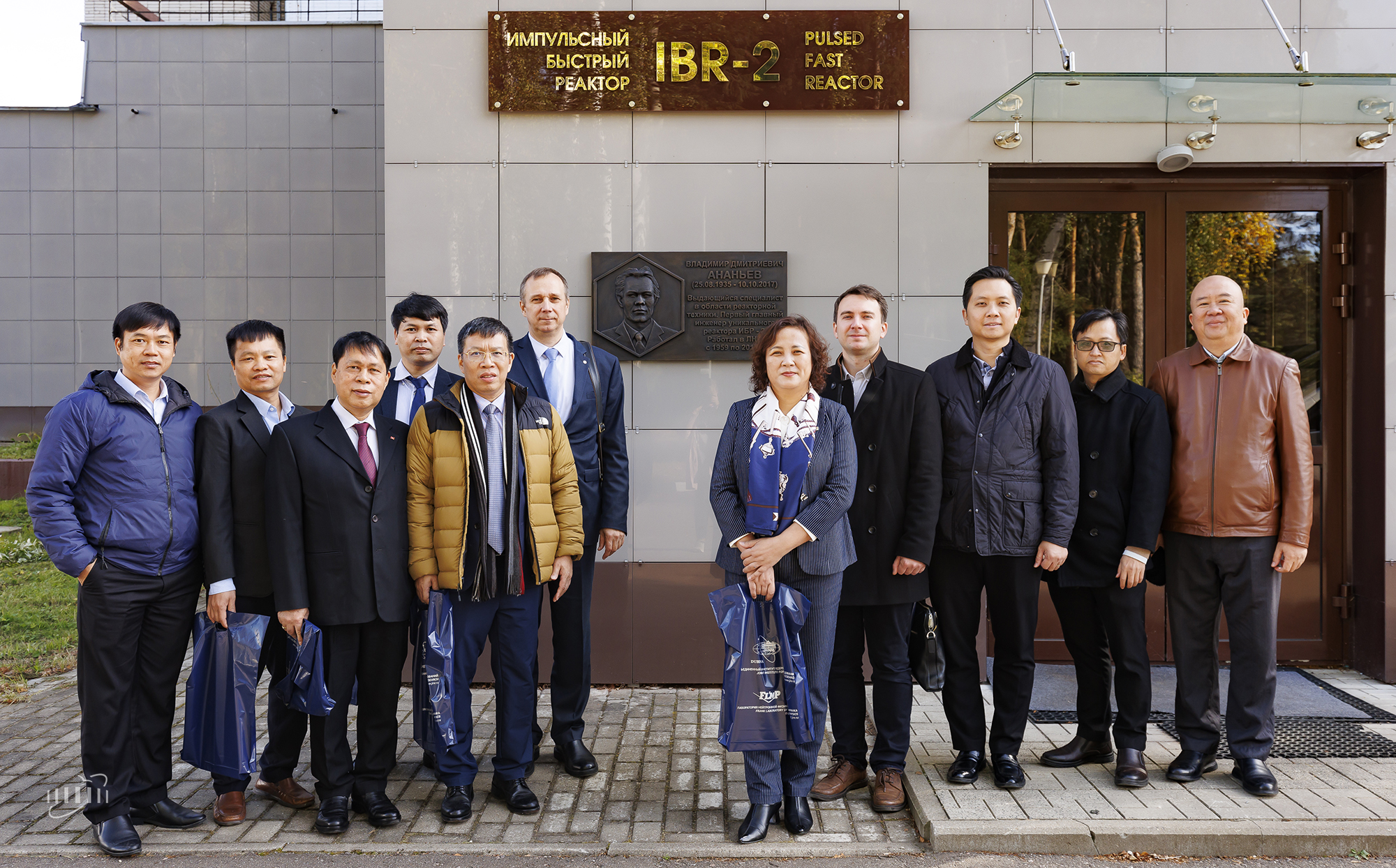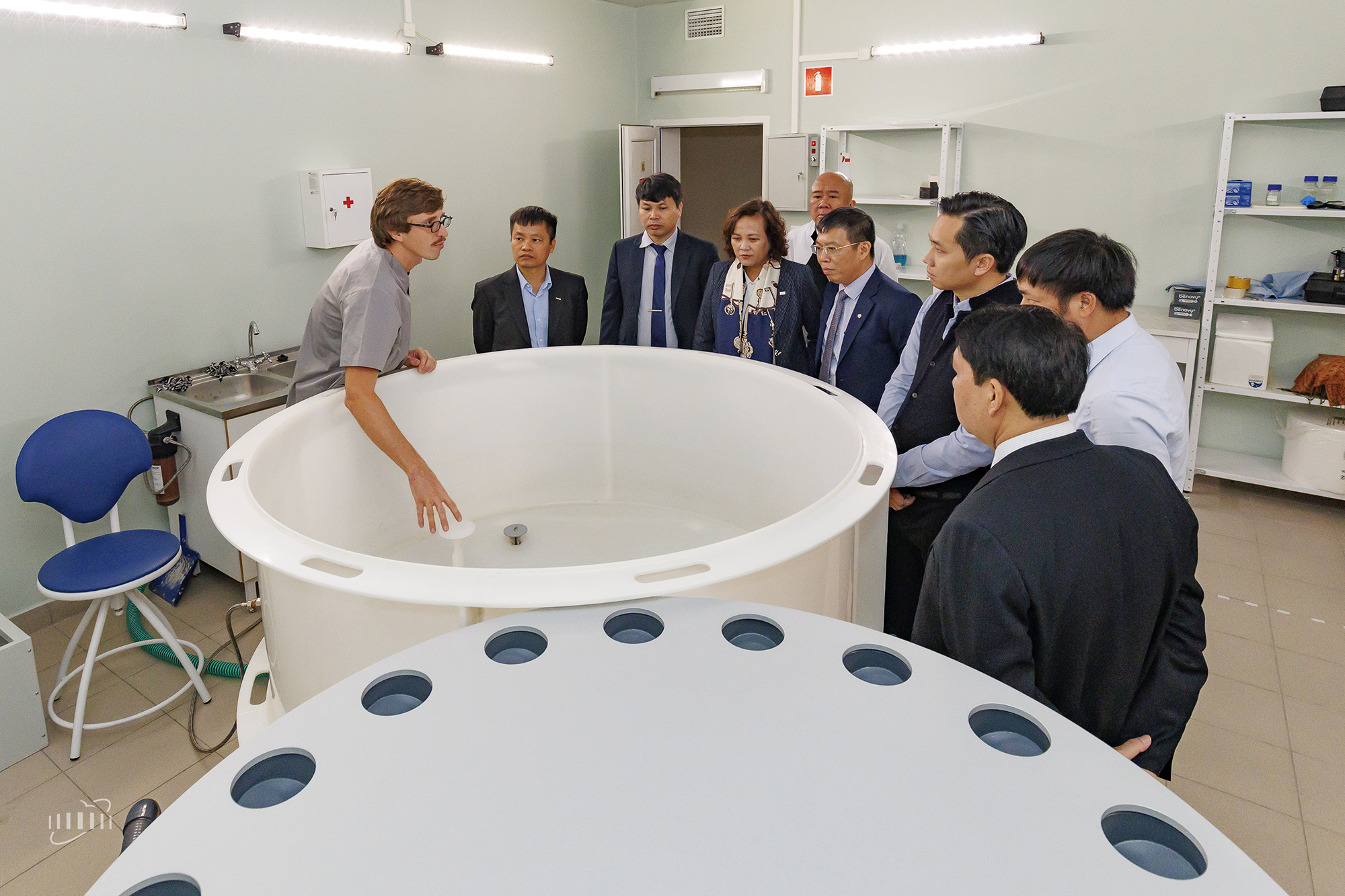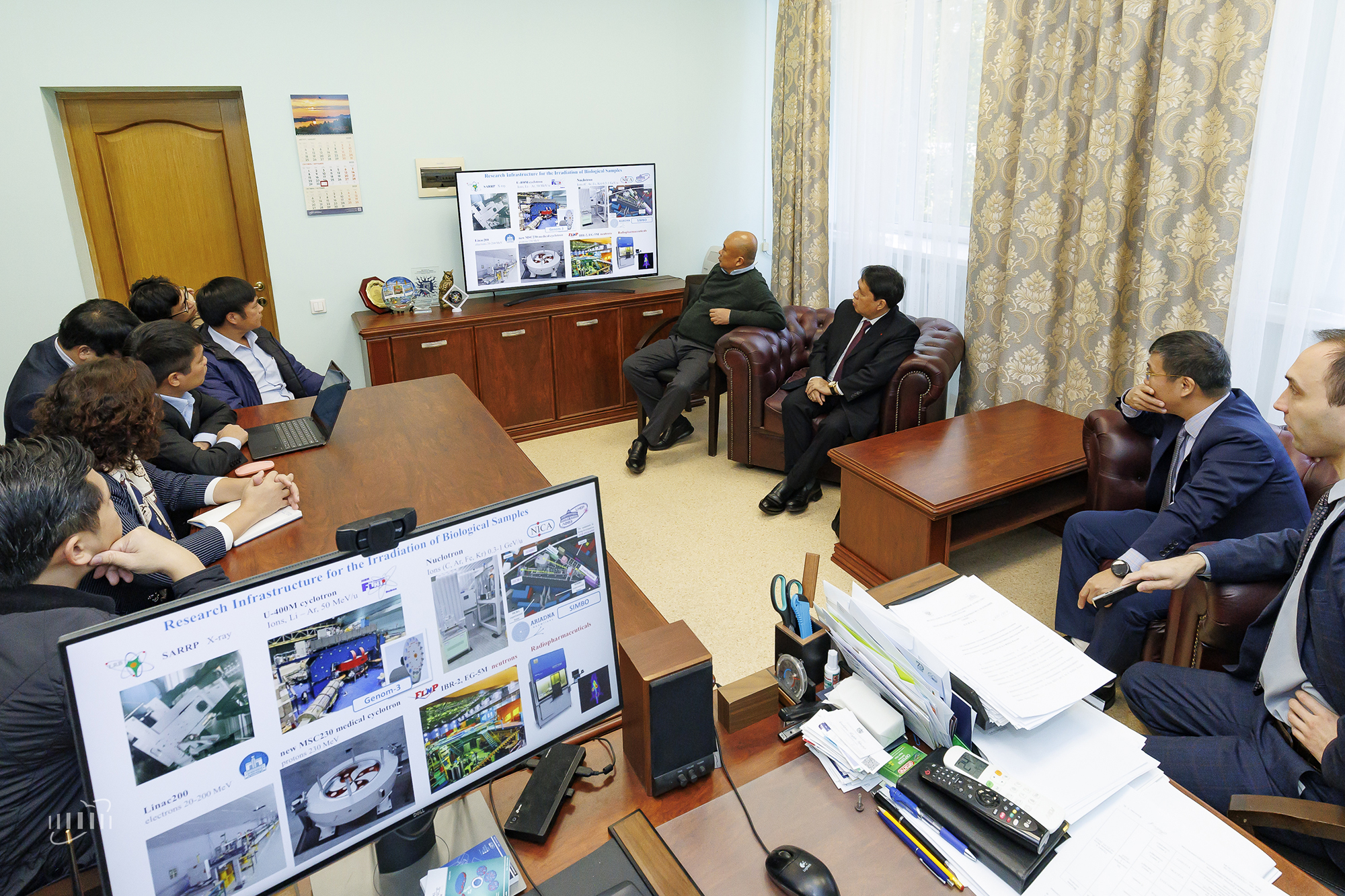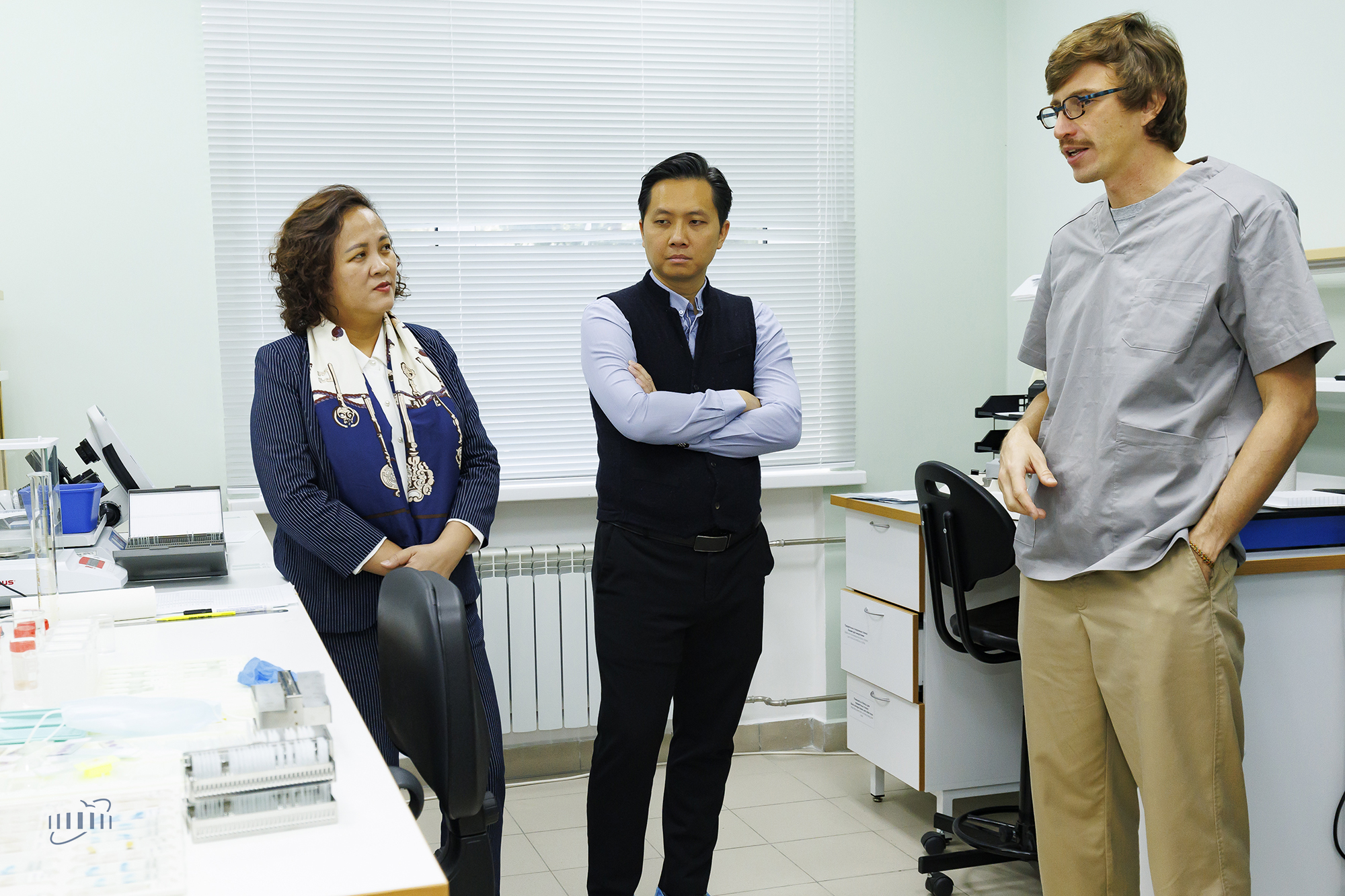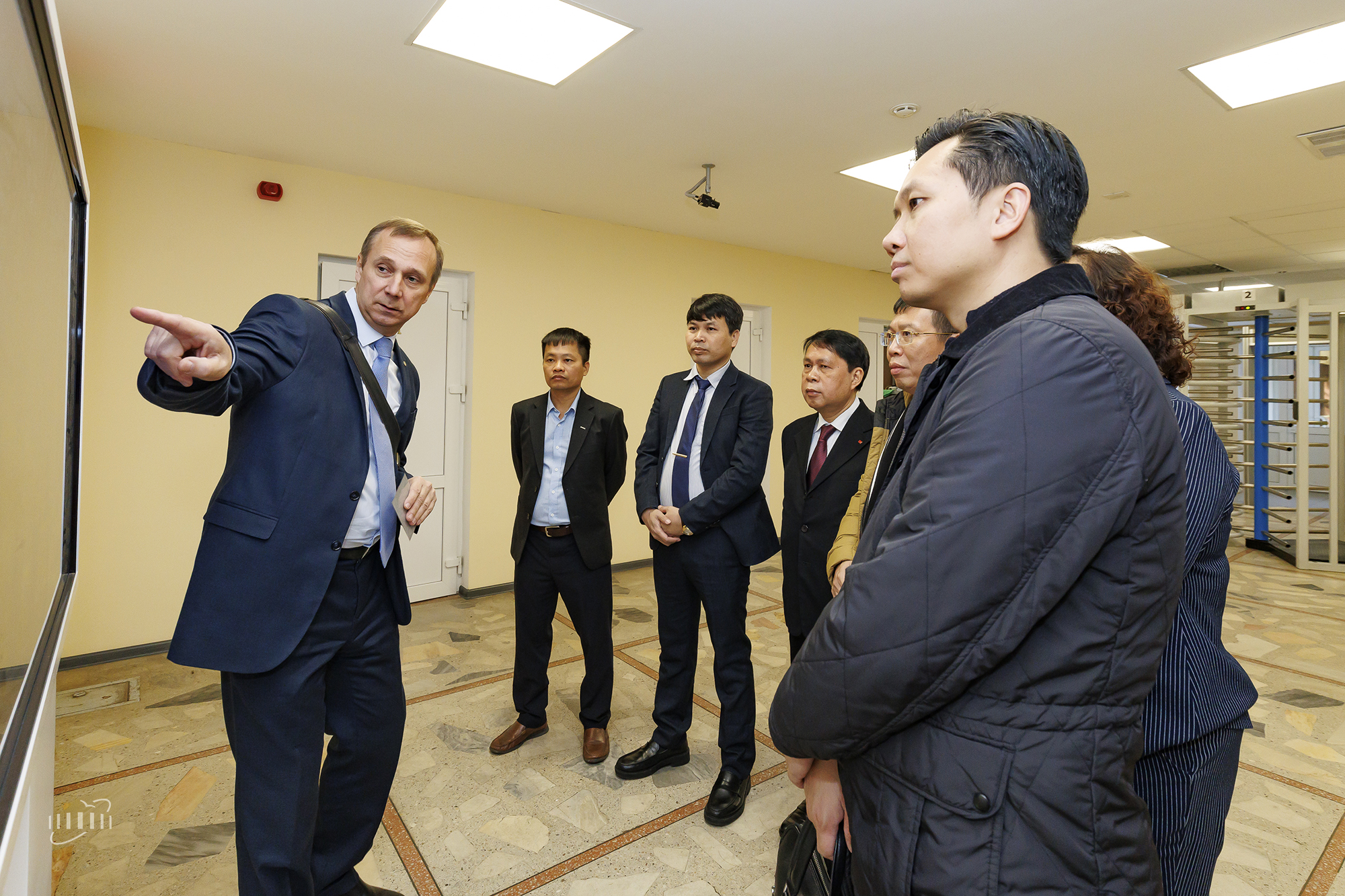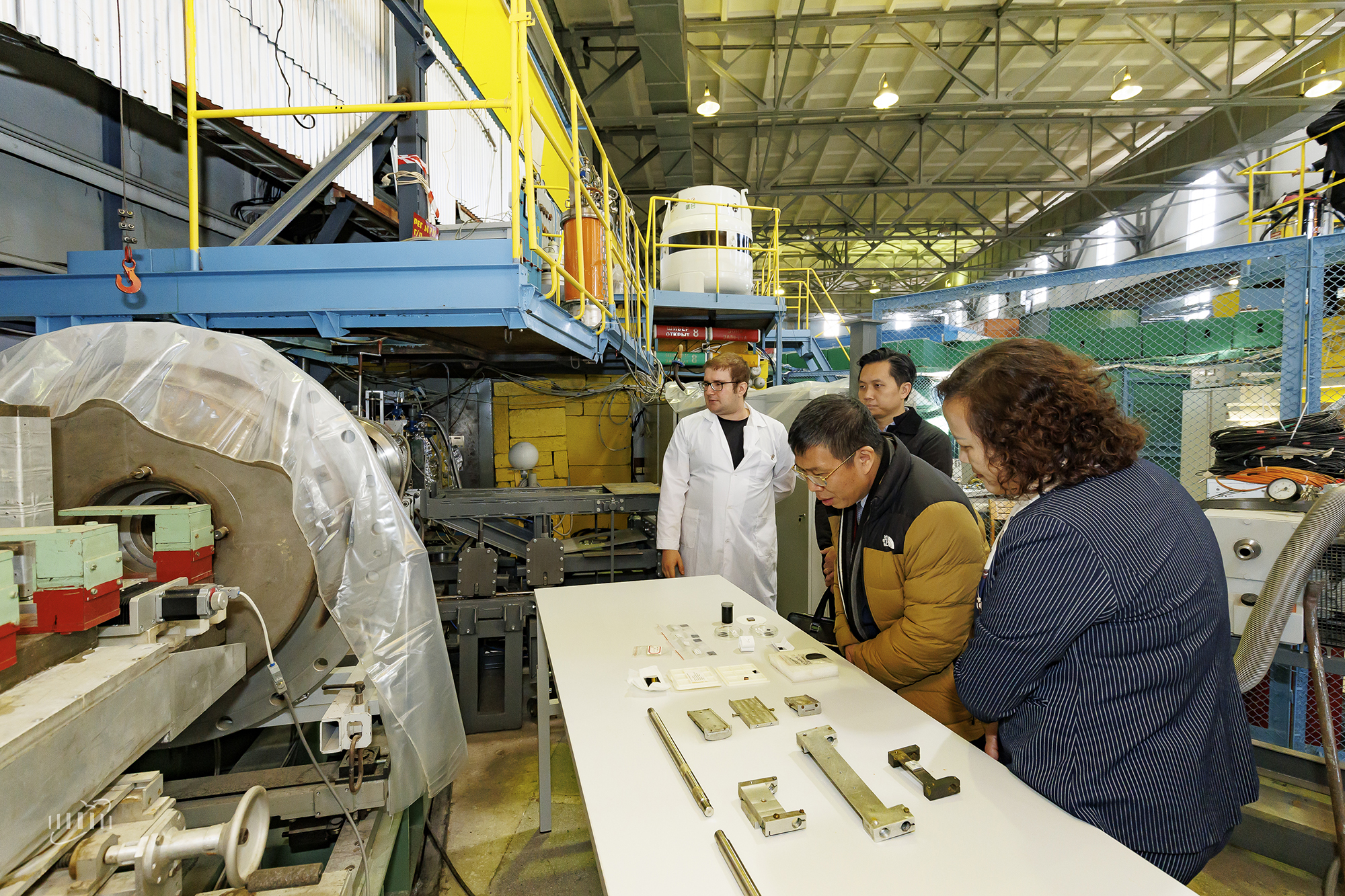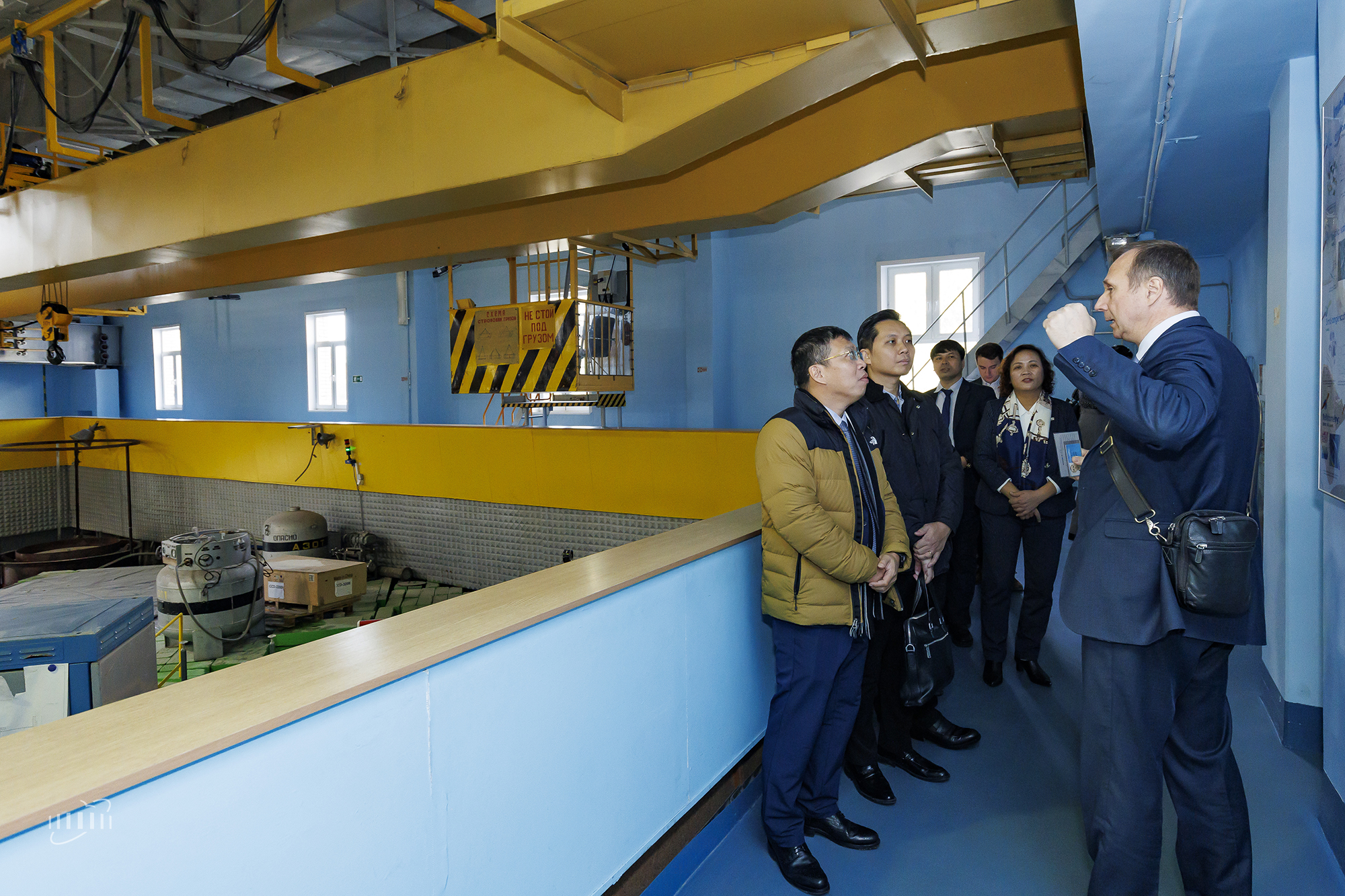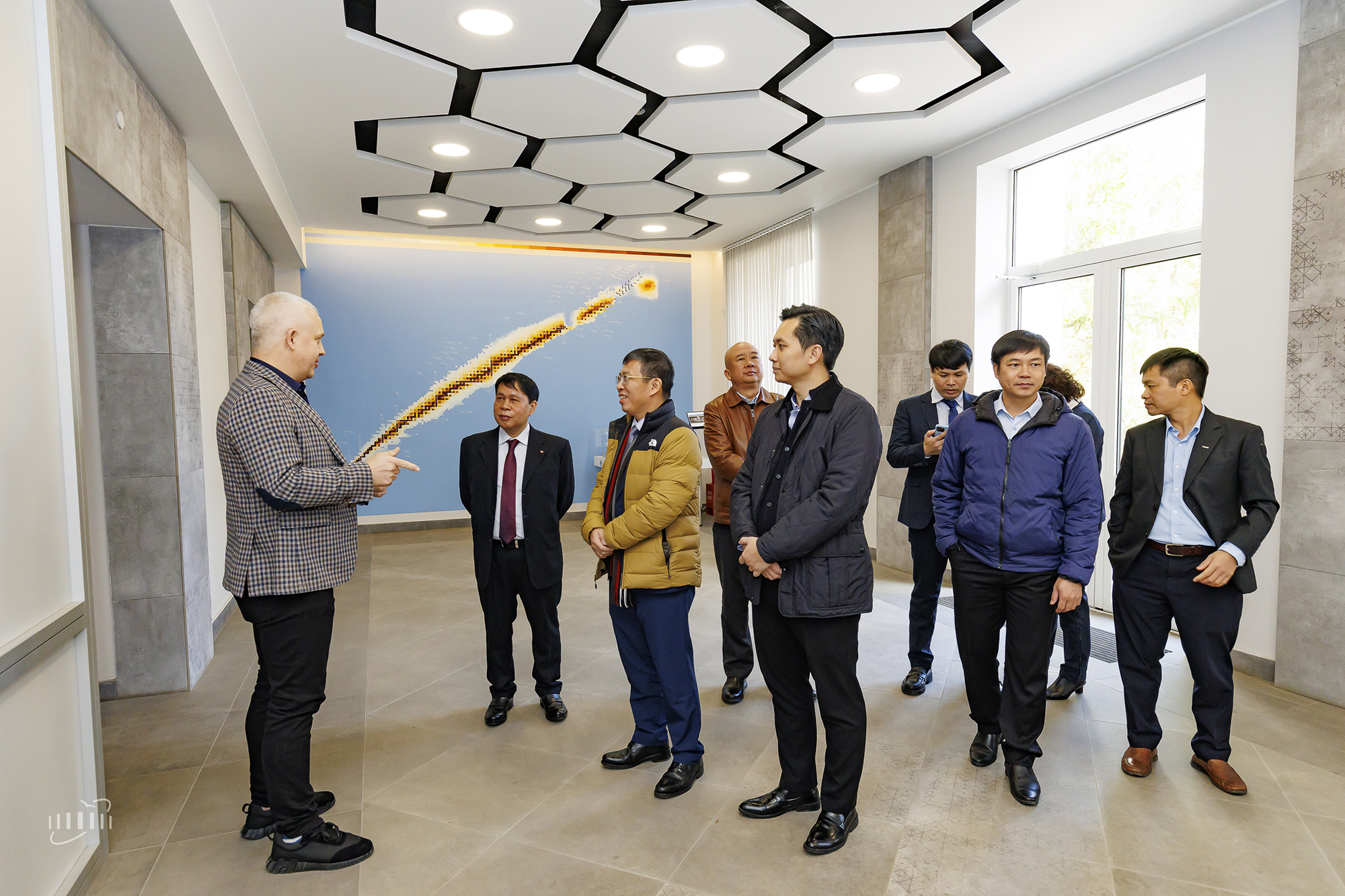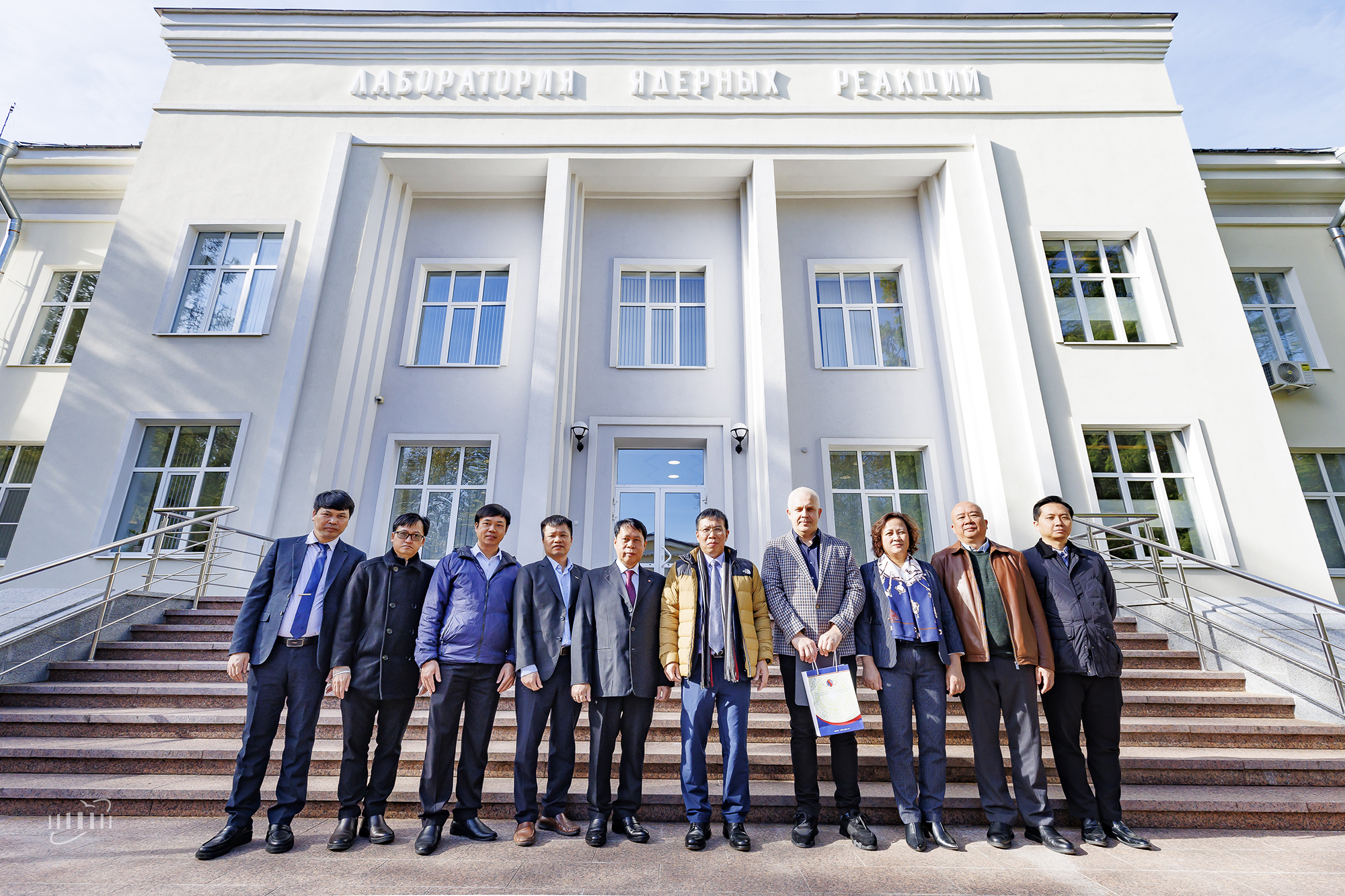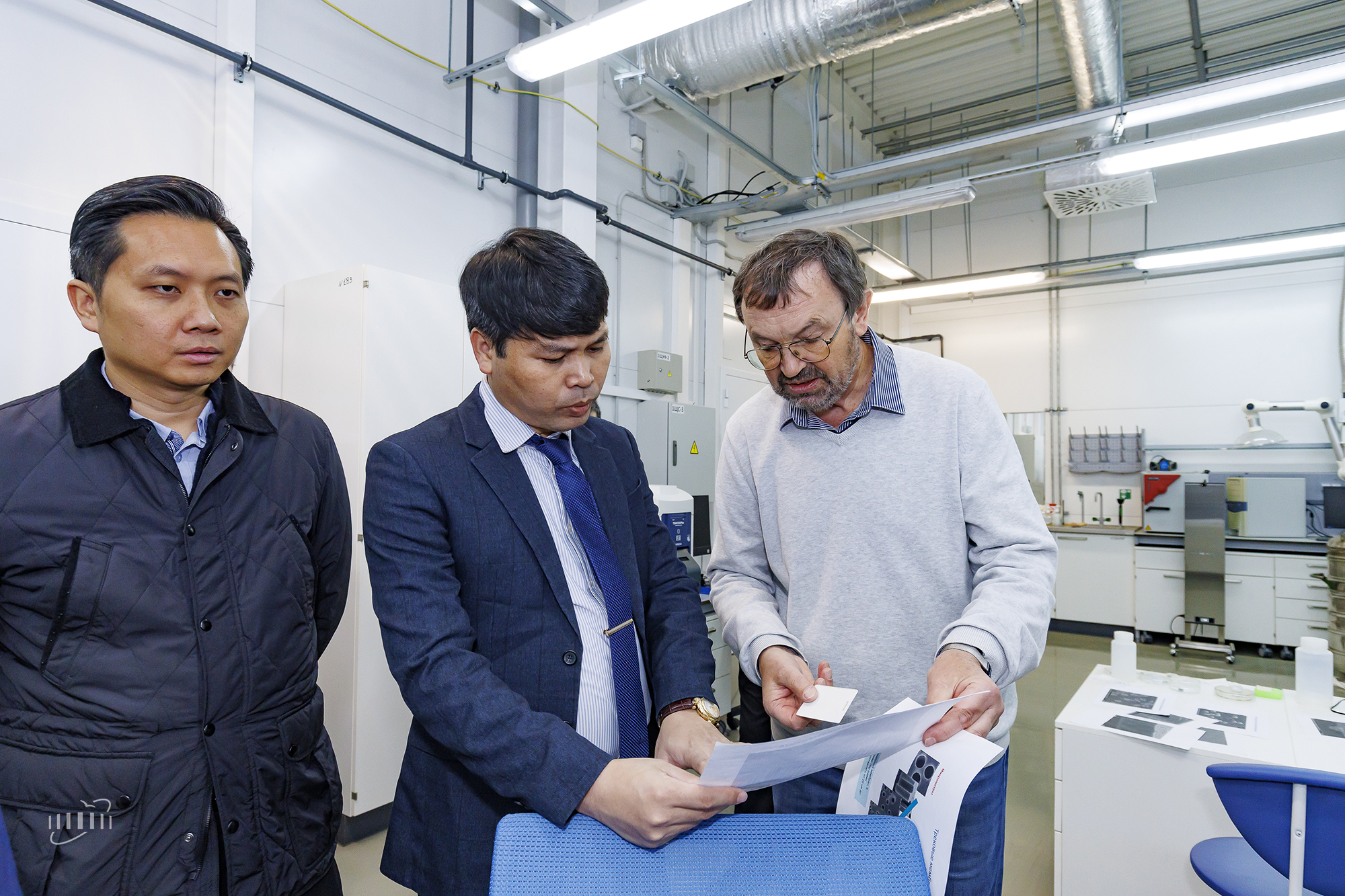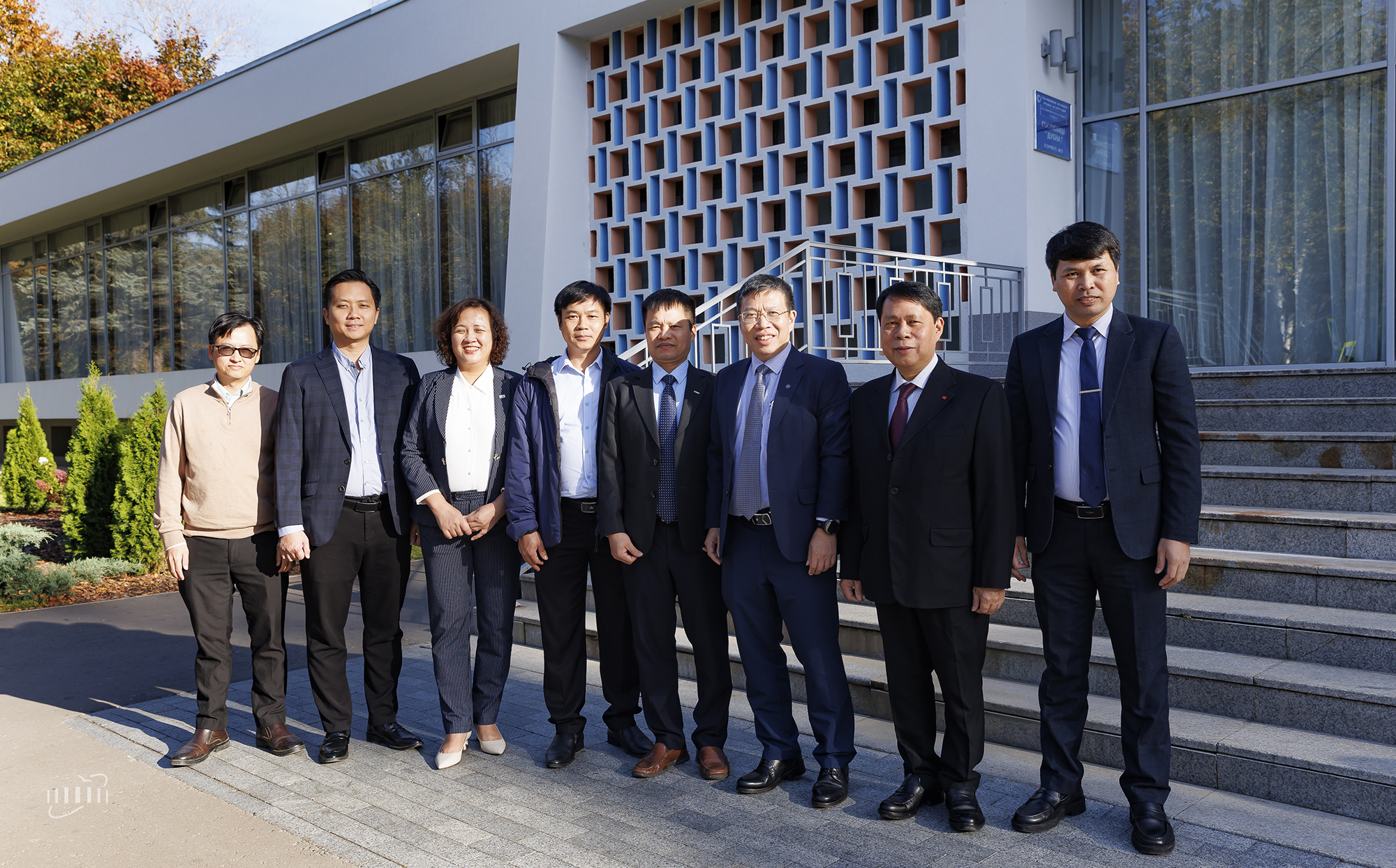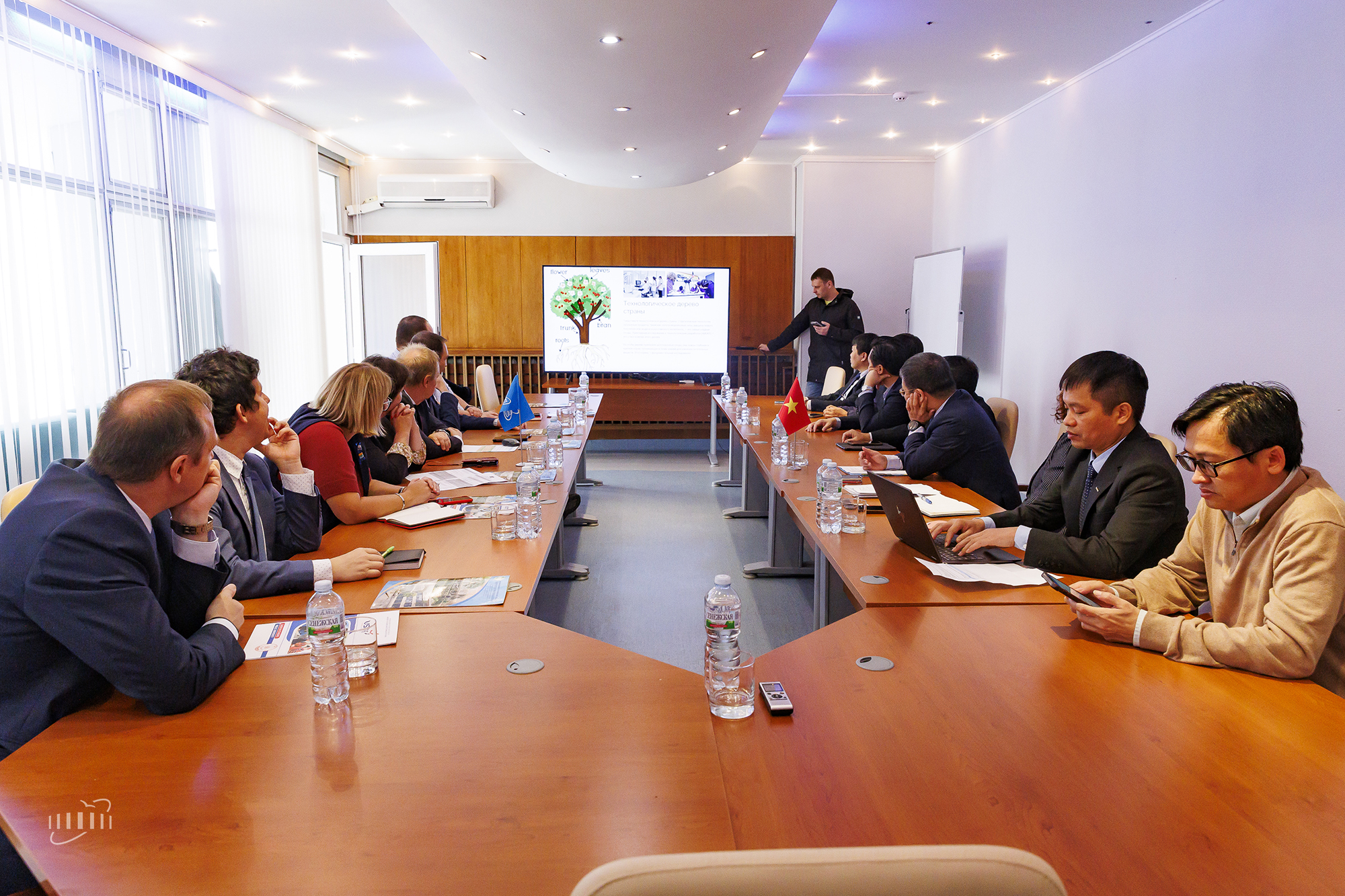JINR hosted visit of representatives of Vietnam scientific centres
News, 02 October 2025
On 1 October 2025, a delegation from the Socialist Republic of Vietnam visited the Joint Institute for Nuclear Research to discuss the issues of strengthening Vietnam–JINR cooperation in science and technology as well as to get acquainted with the unique research infrastructure of the Institute.
The delegation included heads and employees of key organizations of the Vietnam Academy of Science and Technology (VAST): the University of Science and Technology of Hanoi (USTH), the Institute of Materials Science (IMS), the Institute of Chemistry, the Institute of Biology, and the Institute of Oceanography. In addition, the delegation was accompanied by Deputy Head of the Department for Science, Education and Cultural-Social Affairs of Vietnam’s Government Office Nguyen Viet Hung.
The working visit started with an introduction to JINR’s scientific infrastructure. The delegation visited the Laboratory of Radiation Biology, the experimental hall of the IBR-2M Pulsed Reactor at the Frank Laboratory of Neutron Physics, and the Centre of Applied Physics at the Flerov Laboratory of Nuclear Reactions.
In the afternoon, the conference hall of the Dubna Hotel hosted a meeting with representatives of the JINR Directorate and laboratories, including JINR Chief Scientific Secretary Sergey Nedelko, FLNP Director Egor Lychagin, LRB Director Aleksander Bugay, Head of the International Cooperation Department Otilia-Ana Culicov, Head of the Human Resources and Records Management Department Alexander Verkheev, Assistant to the University Centre Director Marina Tumanova, FLNR Deputy Chief Engineer Semen Mitrofanov, and Deputy Head of the International Cooperation Department Elena Badawy.
Director of the Institute of Materials Science, Professor Tran Dai Lam outlined the key objectives of the visit to Dubna. “Our main goal is to study JINR’s development model for its potential adaptation in Vietnam. It is extremely important for us to understand the creation of modern scientific infrastructure and a personnel training system,” he said. “Vietnam has decided to build new reactors, which means the role of education and the acquisition of required competencies is critical. We count on JINR’s help and support”.
The delegation presented a video presentation on the role of science in Vietnam’s technological development. Fundamental and applied physics, radiobiology, biomedicine, materials science, information technology, artificial intelligence, electronics, and semiconductor technologies were highlighted as several of the priority areas. “Fundamental studies are the key to Vietnam’s scientific and technological breakthrough. Extensive research is the only way to create truly innovative products and technologies,” the video noted.
Next, Sergey Nedelko made a presentation on JINR’s activities, describing the Institute’s international scientific cooperation and the research programme in detail. “It is highly important that you are considering the development strategy of the National Academy of Sciences,” the JINR Chief Scientific Secretary addressed the Vietnamese organizations’ representatives. “We need to stay in close contact and discuss further plans. JINR is always ready to be as useful as possible for all its Member and and Partner States”.
USTH Rector Dinh Thi Mai Thanh presented a video about the scientific and educational activities of the University of Science and Technology of Hanoi. “Today, Vietnam is particularly focused not only on developing nuclear energy and fundamental science, but also on training highly qualified personnel to work in these fields,” Professor Dinh noted. “In this regard, we would like to consider the possibility of involving USTH students in educational programmes and internships in Dubna, as we understand how important this is for our country”.
At the meeting, the parties discussed potential ways to collaborate. FLNP JINR Director Egor Lychagin discussed possible formats of interaction, highlighting the user programme of the IBR-2 Research Reactor and international student internships. “The most reliable way to start working together is to clearly define common scientific tasks,” Egor Lychagin emphasised.
Head of the International Cooperation Department Otilia-Ana Culicov suggested considering options for holding lectures for Vietnamese students with the participation of the Institute’s employees and conducting joint online seminars. In her opinion, such events will allow not only to identify the scientific interests of the younger generation, but also to determine the directions of new research projects.
In conclusion of the meeting, Professor Tran expressed deep gratitude to JINR for organizing the visit on behalf of the entire delegation and noted the high scientific potential of the Joint Institute, as well as the rich history of its partnership with Vietnam. The parties confirmed their mutual interest in further cooperation development. “As a JINR Member State, Vietnam has great potential for promoting cooperation and establishing contacts with more research centres and universities,” Sergey Nedelko summarised.
